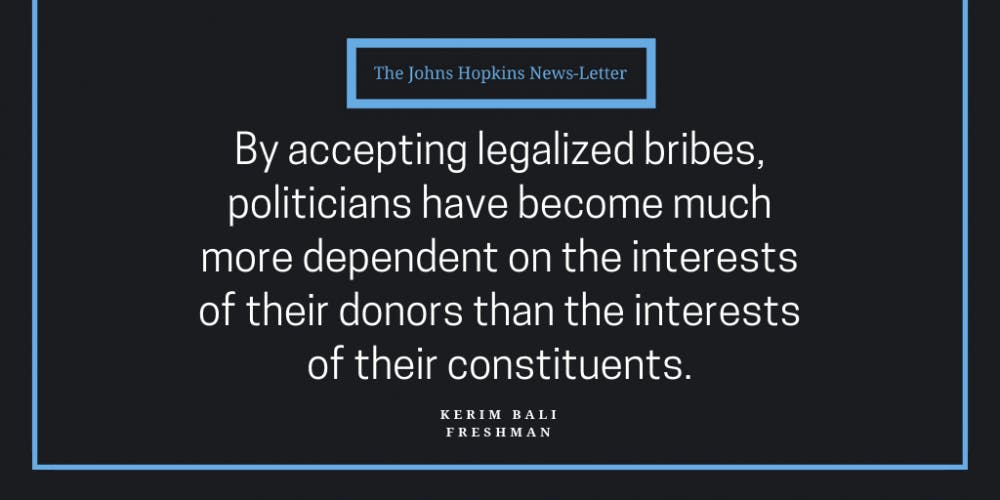In the third Democratic debate, the top 10 candidates went after each other’s policy proposals for either being too ambitious or not ambitious enough. The progressives on the stage, Senators Elizabeth Warren and Bernie Sanders, explained how Medicare for All would bring down the cost of health care. Vice President Joe Biden and Senator Amy Klobuchar attacked progressive proposals and made the pitch for a return to centrism. Senator Kamala Harris and Mayor Pete Buttigieg positioned themselves as the middle ground candidates with their compromise solutions. Entrepreneur Andrew Yang offered to pay several of his supporters monthly ‘freedom dividends’. Former Secretary of Housing and Urban Development Julian Castro tried to get his moment in the sun by going after the frontrunner. Former Congressman Beto O’Rourke took every question as an opportunity to talk about the mass shooting in El Paso. And Senator Cory Booker brilliantly translated his answer “No” into Spanish: “No.”
What almost no candidate talked about was what is inarguably the most important political cause there is. It is the issue that is the root of all other issues: getting money out of politics.
An ABC News/Washington Post poll conducted this month shows that 89 percent of Americans support requiring background checks on all potential gun buyers. Considering the U.S. gun homicide rate is 25 times that of other high-income countries, this is the bare minimum response to the issue. Yet legislation on background checks keeps failing in Congress. This may have something to do with the National Rifle Association (NRA) and its affiliate organizations donating a total of $55 million to politicians in 2016 alone.
Last week, millions of students participated in strikes against climate change. This is an issue which a majority of Americans believe the government should address much more effectively. Unfortunately, many politicians continue to deny that global warming even exists. Perhaps their denial of scientific facts can be explained by their belief in various conspiracies regarding this issue, such as U.S. President Donald Trump’s theory that climate change is a hoax manufactured by the Chinese. The much more likely explanation, however, is that the tens of millions of dollars taken from the fossil fuel industry cloud politicians’ judgment.
According to a Reuters survey, 70 percent of Americans support Medicare for All, a bill which would regulate the prices of prescription drugs. Conservative politicians understandably oppose the legislation due to its endorsement of big government. However, liberal politicians like Speaker of the House Nancy Pelosi are coming out against the bill as well. On a separate note, Pelosi has received $445,000 from the pharmaceutical industry in the last election cycle.
The framers of the Constitution wanted politicians to be “dependent on the people alone.” It is clear that by taking countless contributions from special interest groups — in other words, by accepting legalized bribes — politicians have become much more dependent on the interests of their donors than the interests of their constituents. In the 2016 Democratic primary, Sanders rightly pointed out that special interest groups don’t donate to candidates out of the goodness of their hearts. Rather, they expect candidates to be beholden to them once they get into office. This has corrupted the political system and has greatly contributed to the current gridlock in Washington. How can two sides have rational arguments and achieve bipartisan agreements when donors hold such sway over one side that politicians can’t even accept scientific facts regarding climate change or admit that it’s wrong for elementary school children to have active shooter drills?
In the Houston debate, candidates laid out strategies for dealing with this corrupt and gridlocked system. Harris’ solution is ignoring Congress and taking executive action, a move that would ignore the checks and balances of the federal government and set an incredibly dangerous precedent. Biden called out Harris, saying that executive orders on issues like gun control would be unconstitutional and that he would instead reach across the aisle. Unfortunately, it’s no longer the good old days when you could make bipartisan deals with segregationists. Biden’s friend, former U.S. President Barack Obama, experienced first hand how it is impossible to get anything done when the side across the aisle does not have the interests of the American people in mind.
O’Rourke took a different tactic. During the debate, he simply shouted, “Hell, yes, we’re going to take your AR-15, your AK-47.” However, he didn’t mention the impact of the gun lobbyists currently occupying Capitol Hill. Meanwhile, Warren and Sanders were the only candidates who used the word “corruption” during the entire debate.
While all Democratic candidates seem to theoretically support getting money out of politics, almost none of them would utter the word “corruption” in a lengthy debate. That is extremely problematic. It means that they are either part of the corruption themselves, or they mistakenly see getting money out of politics as separate from the discussions on issues like climate change, health care and gun control.
One of the most viral political moments in 2018 was when a Parkland shooting survivor asked Senator Marco Rubio: “In the name of 17 people, you cannot ask the NRA to keep their money out of your campaign?” The Democrats should ask the same question. Campaign finance reform should be their number one priority. They should better communicate to the American people the link between their politicians receiving money from the fossil fuel industry, the NRA or the pharmaceutical industry and then opposing legislation on related issues. If they don’t, they will help continue the corruption and gridlock of Washington and will be unable to do anything significant in office.
Kerim Bali is a freshman studying Political Science from Istanbul, Turkey. He is a member of Hopkins Democrats.





